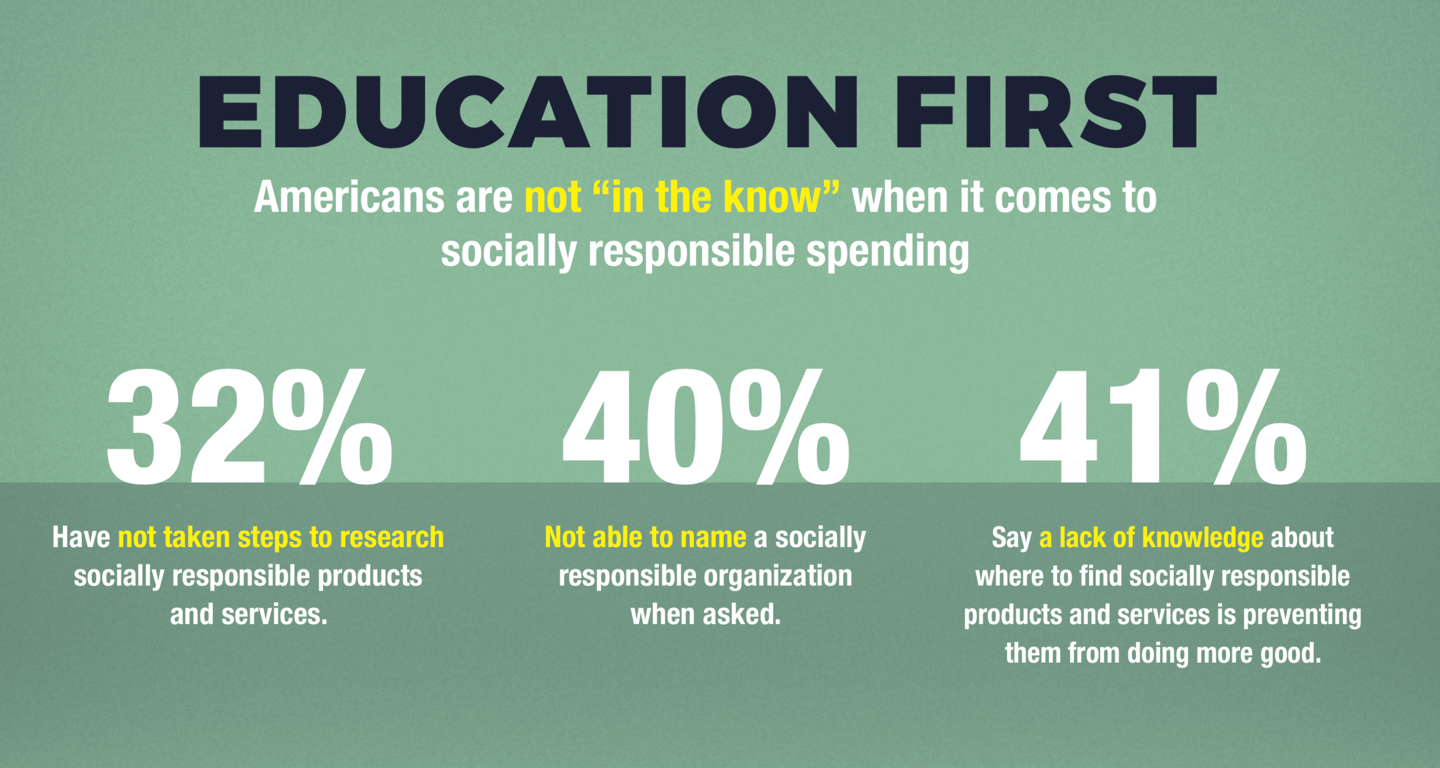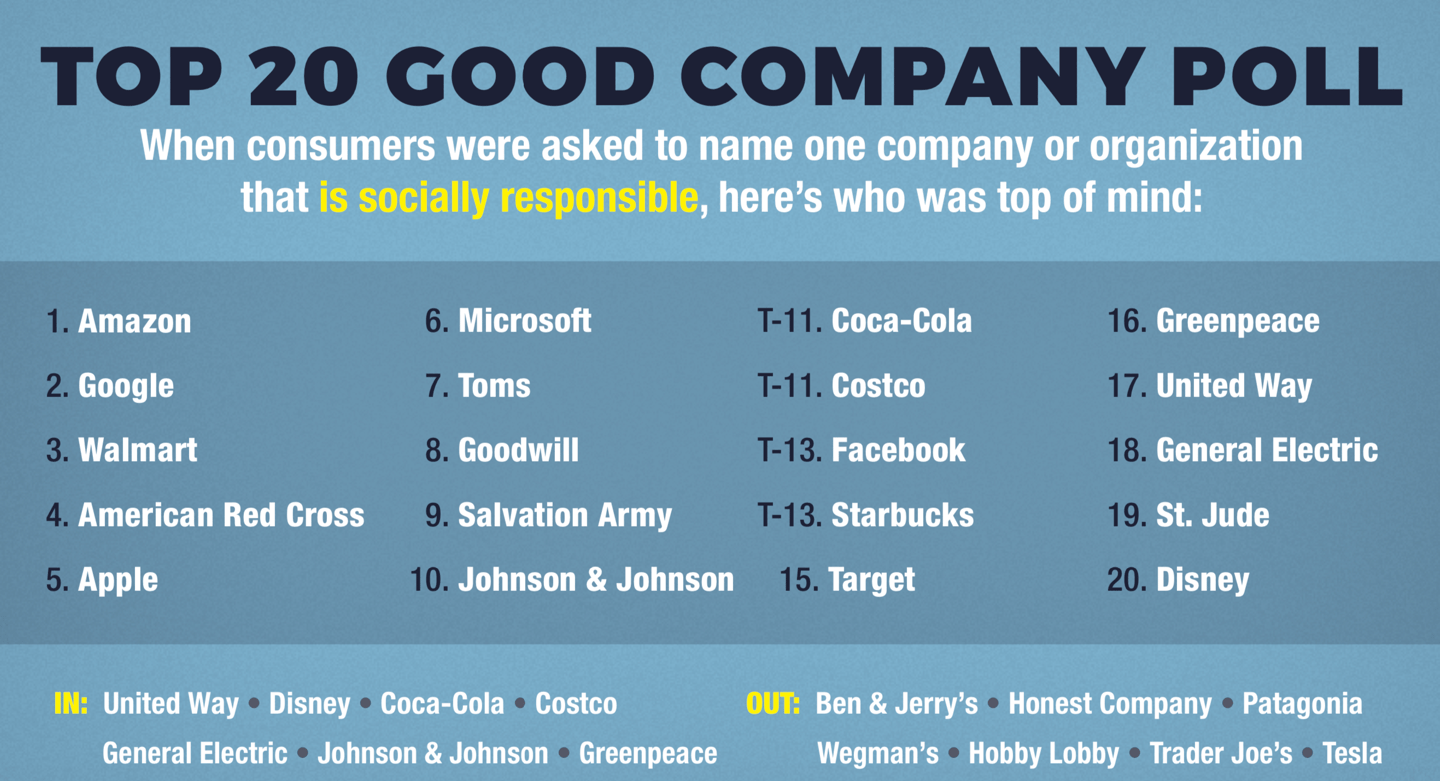Walmart, Target, Costco make list of companies thought of as most socially responsible
For the seventh straight year, Los Angeles-based marketing company Good.Must.Grow surveyed more than 1,000 American consumers on how well they participate in socially responsible consumer habits as well as on their demand for socially responsible products. The results were less than positive.
For one, 40% of the Americans surveyed in the “Conscious Consumer Spending Index” were unable to name a specific company that they found to be socially responsible, and 41% said they had a lack of knowledge when it came to finding socially responsible products. This adds to the result that for the third year in a row fewer respondents are participating in good habits such as recycling, reducing overall consumption, donating to charity, and buying products from socially responsible companies. Only 77% of respondents said they were recycling and properly disposing of waste or using more reusable products. According to the study, this number was as high as 90% in 2015.
The one glimmer of hope from the report: American consumers want to support socially responsible organizations, but they need help doing it. A third of the respondents said they plan on increasing the amount of money they spend on products and services that fit the green and responsible mold.
As for companies considered to be the most socially responsible, the study for the last five years polled respondents to name — based on unaided recall — the companies they believed to be the most socially responsible. Amazon, Google and Walmart topped the list in that order. Costco Wholesale placed 11th on the list, Target ranked a few spots below in 15th place. Both Trader Joe’s and Wegmans Food Markets fell out of the top 20 companies this year.
“I think the biggest takeaway from the past few years is that we can’t expect consumers to lead this movement,” said Heath Shackleford, founder of Good.Must.Grow. “Our data shows that people are more than willing to reward companies for doing the right thing, but they aren’t fully equipped to drive the change we need to see.”
One surprising result from the study is that younger consumers aged 18 to 34 and those in the 25 to 34 demographic saw the biggest decline year over year in terms of how they ranked the importance of a company being socially responsible and pushing that company to do good.



